Amidst the events of this week’s violent clashes in Nairobi and accusations of a heavy-handed government response to protests, rumors began to proliferate, exacerbating public outrage and intensifying an already tense situation.
On Tuesday, citizens witnessed a harrowing day unfold in Nairobi, marked by reports of fatal shootings of protesters near the national parliament during widespread demonstrations that reportedly claimed the lives of at least 23 individuals.
Within hours, disturbing reports emerged, particularly concerning an alleged mass killing of civilians in Githurai, a residential suburb northeast of central Nairobi, which quickly gained traction on social media with some claims suggesting over 200 casualties.
As the story gained momentum online, mainstream media picked up on the reports, followed by calls from credible organizations on Wednesday for an impartial investigation.
By Thursday, when protesters returned to central Nairobi, many cited the alleged events in Githurai as a catalyst.
However, a BBC investigation has uncovered no evidence supporting claims of mass fatalities in Githurai, underscoring the ease with which misinformation can propagate during crises.
The first indications of significant events in Githurai emerged Tuesday evening amid widespread unrest across Kenya.
In Nairobi’s central district, tens of thousands of demonstrators clashed, leading to the breach of parliament, fatalities among protesters, and incidents of looting and police confrontations.
Following the upheaval near parliament, many protesters dispersed toward the city outskirts where Githurai, a densely populated residential area along the Thika Highway, became a focal point.
As night fell, residents of Githurai noticed an increased presence of law enforcement, including what some mistook for military personnel.
Communication was sporadic that evening due to internet disruptions and intermittent mobile service outages across Kenya.
Despite these challenges, several videos surfaced on social media showing sustained gunfire in Githurai near the main Thika Highway roundabout, authenticated by BBC Verify from multiple sources.
In a video, security forces are seen advancing towards protesters, with some appearing to shoot—whether at protesters or into the air remains unclear.
It’s uncertain whether live rounds, rubber bullets, or blanks were used.
There’s no verifiable video or image showing deaths at that time.
A graphic image circulating online shows a body with at least eight bullet holes, but its close-up nature makes verification challenging without identifiable location points.
One authenticated video shows people walking towards Githurai, with smoke visible in the distance as the filmer approaches the suburb.
Those walking alongside raise their hands in a gesture of non-aggression.
Another nearby video depicts crowds gathered at a roundabout, dispersing amid gunfire sounds.
Some footage shows military or police vehicles on the road, with protesters reportedly blocking traffic in two clips.
Despite difficulty verifying details, a significant security operation clearly occurred in the suburb.
However, social media analysis reveals misinformation, including old videos from Ghana mislabelled as current protests.
Reports of an alleged massacre in Githurai spread widely on Wednesday morning, amplified by radio and online discussions.
The Kenya National Commission on Human Rights acknowledged unverified reports of fatalities from stray bullets and pledged investigation.
Later that day, the Law Society of Kenya referenced these allegations, lending them credibility.
LSK president Faith Odhiambo responded to widespread public outrage over alleged police brutality outside parliament by calling for an international investigation into what she described as the “massacre” in Githurai.
In a press conference aired by some Kenyan broadcasters, she urged the international community to conduct independent inquiries into the events of June 25, 2024, in Githurai, Nairobi.
Despite the conflicting reports about the events, Githurai remained a focal point of discussion in Nairobi as the week unfolded.
On Thursday, BBC reporters spoke with several individuals participating in renewed protests in the capital, who indicated that news of the purported incident had motivated them to join demonstrations.
One woman expressed, “There was a massacre yesterday at home. I don’t understand why people are not talking about what happened in Githurai.
“The internet was down, electricity was out. We heard gunshots everywhere. But nobody is discussing what happened in Githurai.
“No one is explaining why so many people were killed there.”
“I hardly slept last night just thinking about the number of people who died in Githurai,” she added.
When asked about the absence of evidence supporting claims of a large-scale killing in the suburb, she responded, “There are videos of people being shot, but everything was down – the internet was down, electricity was down.”
Kenya’s Standard newspaper reported three deaths in Githurai, a claim the BBC has been unable to verify and on which the police have refused to comment.
The BBC sought clarification from Kenya’s police regarding the events in Githurai, but they declined to respond.
Njoki Gachanja, a human rights advocate residing and working in Githurai, told investigative platform Africa Uncensored that reports of a massacre were unfounded.
“All the bodies people have been talking about – that didn’t happen in Githurai,” she stated in a video posted by Africa Uncensored on Wednesday.
She noted that her organization, the Githurai Social Justice Centre, had been active since morning, holding community meetings and forums in search of victims or their families but found no evidence of mass killings as reported.
“I want to confirm that I live in Githurai and there has been no massacre here.”
Ms. Gachanja acknowledged locating one body with gunshot wounds at City Mortuary, the principal government morgue.
She confirmed hearing clashes between security forces and youths in the area on Tuesday from approximately 18:00 to 20:00 local time, with additional gunfire heard overnight.
Many Kenyans believe the government, police, and security forces need to address serious questions about their handling of the protests.
Kenya’s international partners and even the UN Secretary-General expressed concerns about Tuesday’s security response and urged the country to safeguard the right to peaceful protest.
However, amid the turmoil, not all allegations leveled against the authorities have proven accurate.
It is possible that further details will emerge over time to substantiate claims of police misconduct in Githurai.
By Friday evening, the reputable Kenya National Commission on Human Rights, whose data has been cited by numerous global media outlets, maintained that the confirmed death toll related to this week’s protests stood at 23, including 19 fatalities in Nairobi during the protests on Tuesday.
Following the alleged incident in Githurai, there remains no evidence of widespread killings, with some individuals who initially made allegations now acknowledging uncertainty about the events.
The narrative of how news spread regarding what occurred, or perhaps did not occur, in the suburb underscores the potency of online communication.
Social media has become a significant tool for inspiring and coordinating grassroots protests, and it has recently been employed in Kenya to powerful effect.
Yet, as the BBC’s investigation into the Githurai case suggests, social media also possesses the potential to misinform and exacerbate existing tensions.

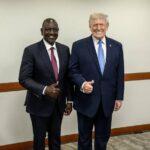

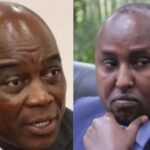

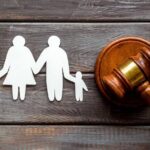

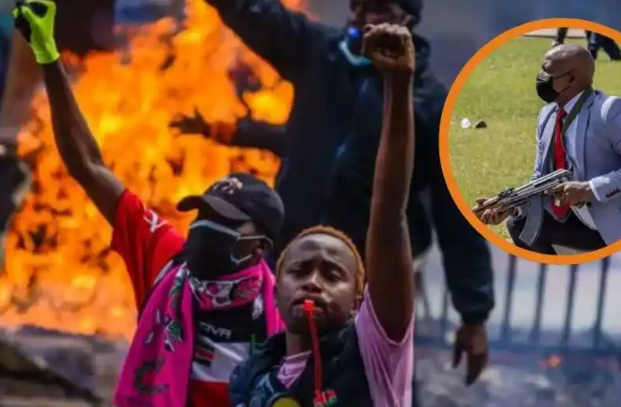









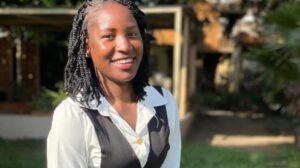

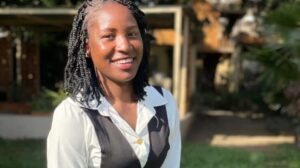
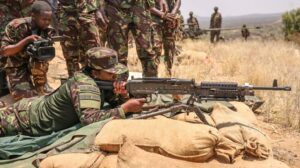
Add Comment